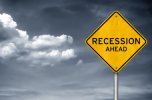- Date
- 15 June 2022
Evaluating the Risk of a Recession
Evaluating the Risk of a Recession
By Jake Rickman |
What do you need to know this week?
First, energy prices around the world continue to soar due to further supply interruptions, including a fire at a key liquid natural gas (LNG) terminal in the US and Russia’s announcement of additional restrictions on the supply of gas to Europe.
Second, inflation is eating away at consumers around the world.
Third, obscure relationships between bond prices and yields grow more vexing, as fixed-income traders “price in future rate rises”. In simple terms: bond investors expect central banks to continue to raise interest rates in an effort to fight inflation.
Fourth, the equity market has entered “bear territory”, defined as shedding 20% or more of its value from the high point.
Finally, speaking of fighting: the conflict in Ukraine appears to be moving into a protracted, dug-in war reminiscent of WWI. This does not bode well for any near-term resolution, both in terms of lives lost and the resultant economic crises.
Each of these developments on its own portends future market uncertainty. Taken together, to many, the picture looks undeniably bleak. As many articles attempt to determine, can we definitively conclude that we are headed for a recession? Are we in the midst of one as we speak?
Why is this important for your interviews?
Given the wide ramifications of a potential recession for clients and law firms alike, there are few commercial developments as topical as the deterioration in macro-economic conditions as outlined above. Increasingly, you may be asked to take a view on what you think the ultimate outcome will be: namely, are we headed for a recession, and, if so, how badly will it be.
Unfortunately, macro-economics is a devilishly complex web of tangled factors at the best of times —no one can read the future. Fortunately, interviewers do not expect you to. Instead, you just need to mount a view and back it up by evidence and considered analysis.
To do this, you might find it helpful to deconstruct some of the language commonly used to describe recessions, starting with “recession itself”.
The term is a broad one that in many respects is not all that helpful of a concept, at least when trying to analyse the present and future. This is because economists tend to use it as a backward-looking tool. A recession is typically defined as two or more quarters of economic contraction. This means that we cannot definitively conclude if we are in a recession until the period has already passed.
Moreover, past recessions are not always alike. Each is usually caused by a different set of factors that converge to result in two (or more) quarters of economic contraction. Similarly, the acute effects of recession can differ depending on the cause. The 2007-08 recession was caused by a toxic system of residential lending: when the residential market structure collapsed, the entire economy was taken out with it.
In the present case, the potentially imminent recession may be driven by more bottom-up factors, as decreased consumer spending (owed to inflation) results in less demand for retail and manufacturing products.

